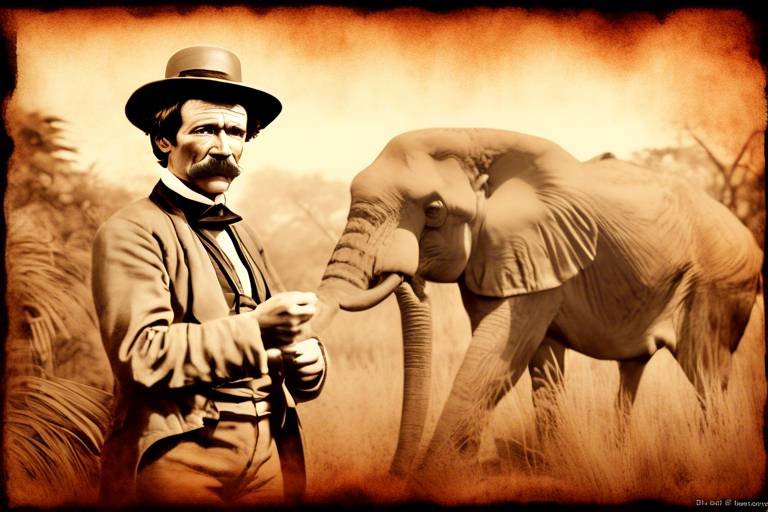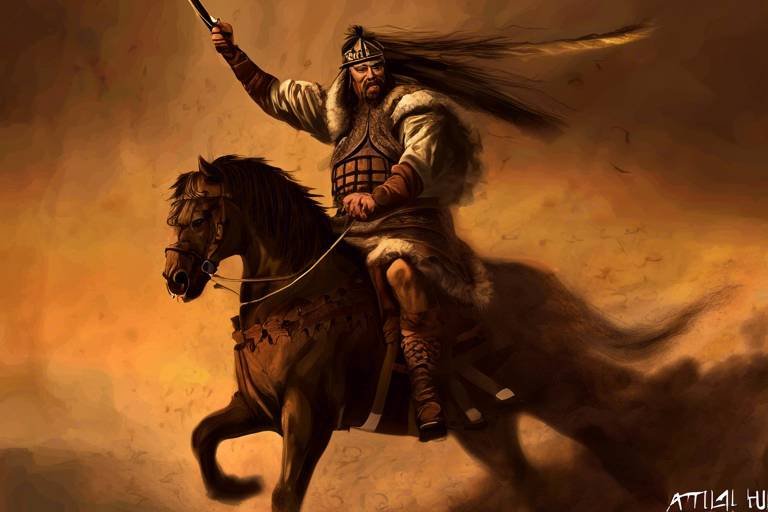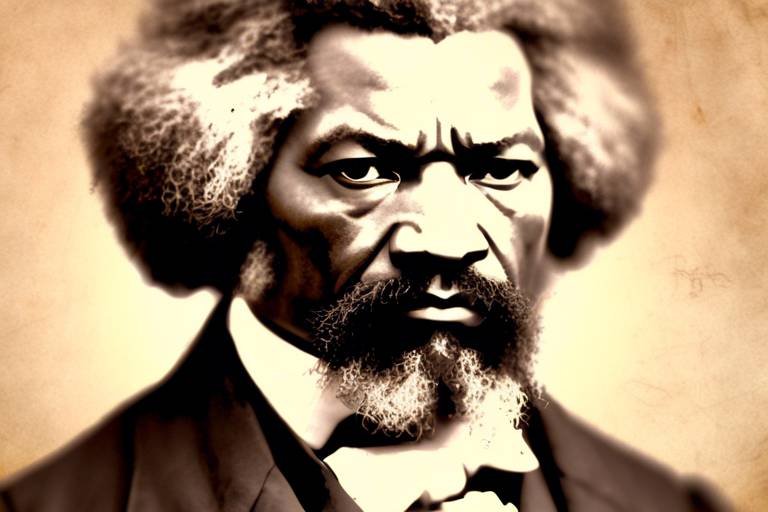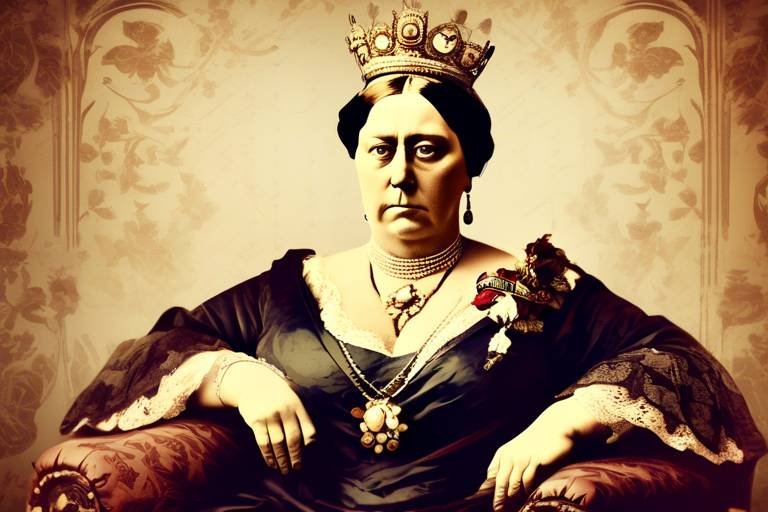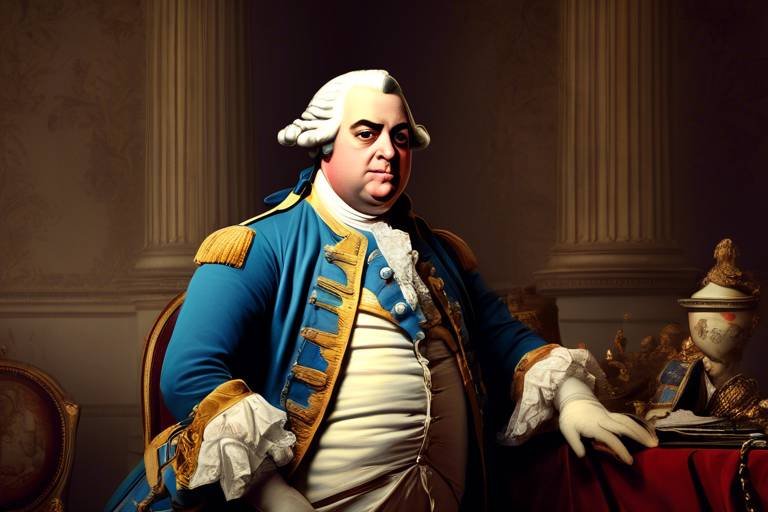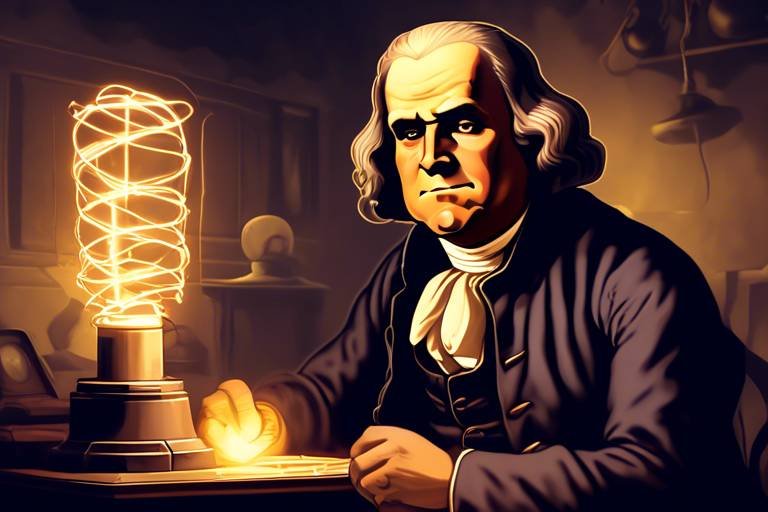David Livingstone: The Explorer of Africa
David Livingstone, a legendary figure in the history of exploration, dedicated his life to uncovering the mysteries of Africa and making significant contributions to geography and medicine. His adventures in the heart of the continent not only expanded our understanding of the African landscape but also played a crucial role in the abolition of the slave trade.
Livingstone's journey began in Scotland, where his thirst for adventure and knowledge was nurtured from a young age. His upbringing instilled in him a deep passion for exploration, leading him to pursue a career that combined his interests in medicine and missionary work.
Embarking on his first expedition to Africa, Livingstone ventured into the unknown, encountering diverse indigenous tribes and navigating the vast Zambezi River. It was during this journey that he stumbled upon the awe-inspiring Victoria Falls, a momentous discovery that captivated the imagination of European explorers.
Driven by a sense of purpose, Livingstone dedicated himself to missionary work and became a staunch advocate for the abolition of the slave trade. His efforts to spread Christianity and promote commerce in Africa reflected his commitment to advancing civilization on the continent.
Undeterred by challenges, Livingstone embarked on extensive explorations into the African interior, mapping uncharted territories and forging connections with local communities. His interactions with indigenous peoples provided valuable insights into the diverse cultures and landscapes of Africa.
However, Livingstone's fate took a mysterious turn when he disappeared during his quest to uncover the source of the Nile. The international search efforts that followed culminated in his eventual rediscovery, sparking renewed interest in his remarkable legacy.
David Livingstone's explorations left an indelible mark on African geography, inspiring future generations of adventurers and contributing to the dismantling of colonialism in Africa. His legacy continues to resonate today, serving as a testament to the power of exploration and the enduring impact of one man's extraordinary journey.
- What motivated David Livingstone to explore Africa?
- How did Livingstone's discoveries contribute to the abolition of the slave trade?
- What was the significance of Livingstone's encounter with Victoria Falls?
- How did Livingstone's missionary work influence his explorations?
- What led to Livingstone's disappearance during his expedition?
- What is David Livingstone's legacy in the context of African exploration?

Early Life and Education
David Livingstone, born in Blantyre, Scotland in 1813, had a humble beginning that would eventually lead to extraordinary adventures in the heart of Africa. Growing up in a devout family, Livingstone's early exposure to missionary work sparked a deep-rooted passion for exploration and spreading Christianity beyond the borders of his homeland. With a thirst for knowledge and a compassionate heart, he set out on a path that would intertwine medicine, geography, and humanitarianism in ways that would leave a lasting impact on the world.
Despite facing financial challenges, Livingstone's determination to pursue a career in medicine and missionary work never wavered. His relentless pursuit of education led him to study at Anderson's College in Glasgow, where he honed his medical skills and nurtured his desire to serve those in need. It was during this time that Livingstone's fervor for exploration began to take shape, fueled by a curiosity about the unknown lands and peoples of distant continents.
Upon completing his medical studies, Livingstone embarked on a journey that would forever alter the course of his life. Venturing into the heart of Africa, he sought not only to satisfy his thirst for discovery but also to fulfill his calling as a missionary. His encounters with diverse cultures and landscapes during this formative period laid the foundation for his future expeditions and his unwavering commitment to bridging the gap between civilizations.
Livingstone's early experiences in Africa shaped his worldview and instilled in him a deep sense of purpose. His interactions with local communities, coupled with his academic background in medicine and theology, equipped him with the tools necessary to navigate the complexities of the African continent. As he delved deeper into his dual roles as explorer and humanitarian, Livingstone's dedication to understanding and uplifting the people of Africa became increasingly intertwined with his personal identity.

First Expedition to Africa
David Livingstone embarked on his first expedition to Africa with a fervor for exploration and a desire to uncover the mysteries of the continent. Setting sail from England in 1840, Livingstone ventured into the unknown, eager to discover new lands and peoples. His journey was not without its challenges, as he navigated treacherous terrain and faced the uncertainties of the African wilderness.
During his initial expedition, Livingstone encountered various indigenous tribes, immersing himself in their cultures and traditions. He learned from the local communities, gaining valuable insights that would shape his future explorations and interactions. His interactions with the people of Africa laid the foundation for his deep respect and admiration for the continent and its inhabitants.
One of the most significant highlights of Livingstone's first expedition was his exploration of the Zambezi River. As he traveled along the river, he marveled at the diverse wildlife and stunning landscapes that surrounded him. The Zambezi River provided Livingstone with a gateway to further exploration and discovery, fueling his passion for uncovering the secrets of Africa.
Amidst his journey, Livingstone made a groundbreaking discovery that would capture the imagination of the world - the majestic Victoria Falls. Standing in awe of the powerful cascades, Livingstone realized the immense natural beauty and grandeur of Africa. His encounter with Victoria Falls marked a pivotal moment in European exploration of the continent, solidifying his reputation as a pioneering explorer.

Discovery of Victoria Falls
David Livingstone's marked a pivotal moment in his explorations of Africa. Imagine the sheer astonishment that must have gripped him as he laid eyes on the breathtaking cascade of water, thundering down with a force that seemed almost otherworldly. The sight of the majestic Victoria Falls must have been a moment of pure wonder and awe, a natural marvel that left Livingstone in awe of the raw power and beauty of the African continent.
Victoria Falls, also known as Mosi-oa-Tunya ("The Smoke that Thunders") by the local indigenous people, is one of the largest and most spectacular waterfalls in the world. The sheer size and grandeur of the falls would have been a sight to behold for Livingstone, reinforcing his belief in the untapped wonders of Africa and the need to explore and document its natural riches.
Standing on the edge of the precipice, feeling the mist on his face and hearing the deafening roar of the cascading water, Livingstone must have been filled with a sense of adventure and discovery unlike any other. The discovery of Victoria Falls not only added to Livingstone's reputation as a daring explorer but also captured the imagination of the European public, igniting a fascination with the uncharted territories of Africa.
Livingstone's encounter with Victoria Falls was not just a personal triumph but a significant milestone in the history of European exploration of Africa. The discovery of such a natural wonder served to fuel the curiosity and ambition of future explorers, inspiring them to venture deeper into the continent in search of new discoveries and revelations.

Missionary Work and Abolitionist Efforts
David Livingstone's missionary work and abolitionist efforts in Africa were pivotal in shaping his legacy as an explorer with a deep sense of purpose beyond geographical discovery. His travels were not merely about mapping uncharted territories but also about spreading Christianity, fighting against the heinous slave trade, and advocating for the advancement of commerce and civilization in the African continent.
Livingstone's dedication to missionary work stemmed from his belief in the power of Christianity to bring about positive change in the lives of the indigenous people he encountered. He saw his role as not only exploring the physical landscapes of Africa but also as a spiritual guide, aiming to introduce the local communities to the teachings of Christianity.
Moreover, Livingstone was a staunch opponent of the slave trade, which was rampant in Africa during the 19th century. He witnessed the atrocities committed against enslaved individuals and was deeply disturbed by the inhumanity of the trade. His firsthand experiences fueled his determination to work towards the abolition of this barbaric practice.
Livingstone's efforts to promote commerce and civilization in Africa were driven by his vision of a continent that could thrive economically and culturally. He believed that by opening up trade routes and establishing peaceful relations with local tribes, Africa could experience progress and development, free from the shackles of exploitation and oppression.
Through his missionary work and abolitionist efforts, Livingstone sought to not only explore the physical landscapes of Africa but also to leave a lasting impact on the social, cultural, and economic fabric of the continent. His legacy as an explorer, missionary, and abolitionist continues to inspire generations to strive for a better, more just world.

Explorations in the Interior
David Livingstone's explorations in the interior of Africa were not only groundbreaking but also deeply impactful. Venturing into the heart of the continent, Livingstone embarked on a series of expeditions that would forever change the way the world viewed Africa. His travels were marked by a relentless pursuit of knowledge, a deep respect for the local cultures, and a genuine curiosity about the mysteries of the continent.
Livingstone's explorations took him through vast and uncharted territories, where he meticulously documented his findings, mapping out the geography of the region with unprecedented detail. His encounters with local communities were characterized by mutual respect and a genuine interest in understanding their way of life. Livingstone believed in the power of dialogue and exchange, seeing each interaction as an opportunity to learn and grow.
One of the most remarkable aspects of Livingstone's explorations was his commitment to scientific inquiry. He collected botanical and zoological specimens, studied the geological formations of the land, and documented the diverse flora and fauna he encountered. His observations laid the foundation for future scientific research in the region and contributed significantly to the field of African geography.
Livingstone's explorations in the interior of Africa also had a profound impact on the European imagination. His vivid descriptions of the landscapes, people, and wildlife he encountered captured the hearts and minds of readers back in Europe, sparking a wave of interest in the continent. Through his writings, Livingstone brought Africa to life for a global audience, challenging stereotypes and misconceptions along the way.
Overall, Livingstone's explorations in the interior of Africa were a testament to his courage, curiosity, and unwavering dedication to discovery. His legacy continues to inspire adventurers, scholars, and humanitarian workers to this day, reminding us of the boundless possibilities that await those willing to venture into the unknown.

Lost in Africa
David Livingstone's mysterious disappearance during his expedition to find the source of the Nile remains one of the most enigmatic events in African exploration history. Setting out on his ambitious quest in search of the legendary river's origins, Livingstone ventured deep into the heart of the continent, facing numerous challenges and dangers along the way.
As he delved further into the uncharted territories of Africa, communication with the outside world became sporadic, leading to growing concerns about his safety and well-being. The prolonged absence of updates from Livingstone sparked international alarm, prompting a series of search missions to locate the missing explorer.
Despite extensive efforts to track him down, including the deployment of search parties and expeditions funded by various organizations, Livingstone remained elusive, adding to the mystery surrounding his fate. Rumors and speculations circulated, fueling both intrigue and anxiety about the renowned explorer's whereabouts.
The prolonged absence of any concrete information about Livingstone's location led to widespread speculation and uncertainty, with many fearing the worst. The uncertainty surrounding his fate captured the imagination of people around the world, turning Livingstone's disappearance into a captivating enigma that endured long after his initial vanishing.
Ultimately, after an exhaustive search effort spanning several years, Livingstone was rediscovered in 1871 by fellow explorer Henry Morton Stanley in present-day Tanzania. The emotional encounter between the two men, immortalized by Stanley's famous words "Dr. Livingstone, I presume?" marked the end of Livingstone's isolation and the resolution of the mystery that had gripped the world.

Legacy and Impact
David Livingstone's legacy and impact on African exploration and history are profound and enduring. His expeditions and discoveries have left an indelible mark on the continent, shaping its geography and inspiring generations of future explorers.
Livingstone's explorations paved the way for a greater understanding of Africa's interior, as he meticulously mapped uncharted territories and documented his interactions with local communities. His detailed accounts provided valuable insights into the diverse cultures and landscapes of the continent, challenging prevailing European perceptions of Africa as a mysterious and impenetrable land.
One of Livingstone's most significant contributions was his staunch opposition to the slave trade. By advocating for the abolition of slavery and promoting commerce and civilization in Africa, he played a pivotal role in raising awareness of the atrocities committed against indigenous populations. His efforts helped galvanize support for the anti-slavery movement and contributed to the eventual end of the transatlantic slave trade.
Livingstone's legacy extends beyond his explorations and humanitarian work. His writings and lectures captivated audiences around the world, sparking interest in African geography and culture. His impassioned accounts of his adventures inspired a new wave of explorers and missionaries, who sought to follow in his footsteps and continue his mission of enlightenment and progress.
Furthermore, Livingstone's impact on the end of colonialism in Africa cannot be overstated. His advocacy for indigenous rights and self-determination laid the groundwork for future independence movements on the continent. By challenging colonial powers and championing the dignity and autonomy of African peoples, Livingstone helped sow the seeds of liberation and empowerment that would eventually lead to the dismantling of imperial rule in Africa.
Frequently Asked Questions
- What were David Livingstone's major contributions to geography?
David Livingstone made significant contributions to geography through his extensive explorations across Africa. He mapped uncharted territories, discovered Victoria Falls, and provided valuable insights into the continent's geography for European explorers.
- How did David Livingstone impact the abolition of the slave trade?
Livingstone's strong opposition to the slave trade and his efforts to promote commerce and civilization in Africa played a crucial role in raising awareness about the atrocities of the slave trade. His writings and advocacy helped garner support for the abolitionist movement.
- What was the significance of Livingstone's discovery of Victoria Falls?
Livingstone's discovery of Victoria Falls was a pivotal moment in European exploration of Africa. It showcased the natural wonders of the continent and fueled interest in further expeditions. The falls were named in honor of Queen Victoria, adding to their historical importance.
- How did Livingstone's missionary work influence his explorations?
Livingstone's missionary work provided him with unique access to remote African regions, allowing him to combine his religious mission with exploration. His interactions with local communities and understanding of their cultures enriched his exploratory endeavors.

